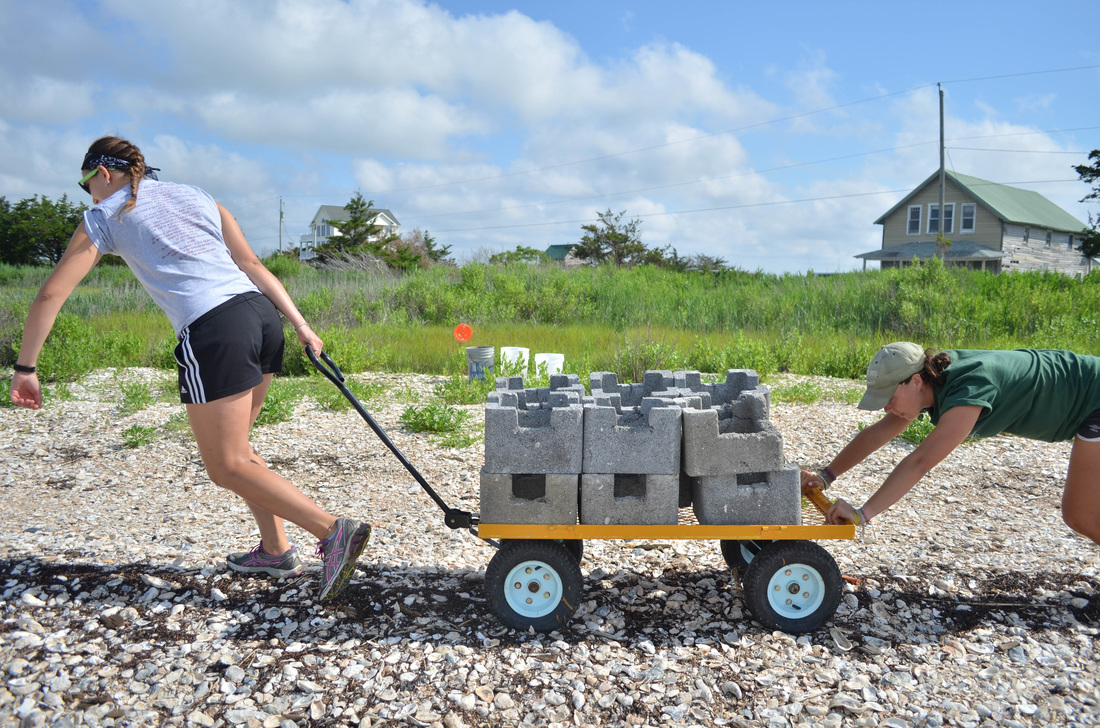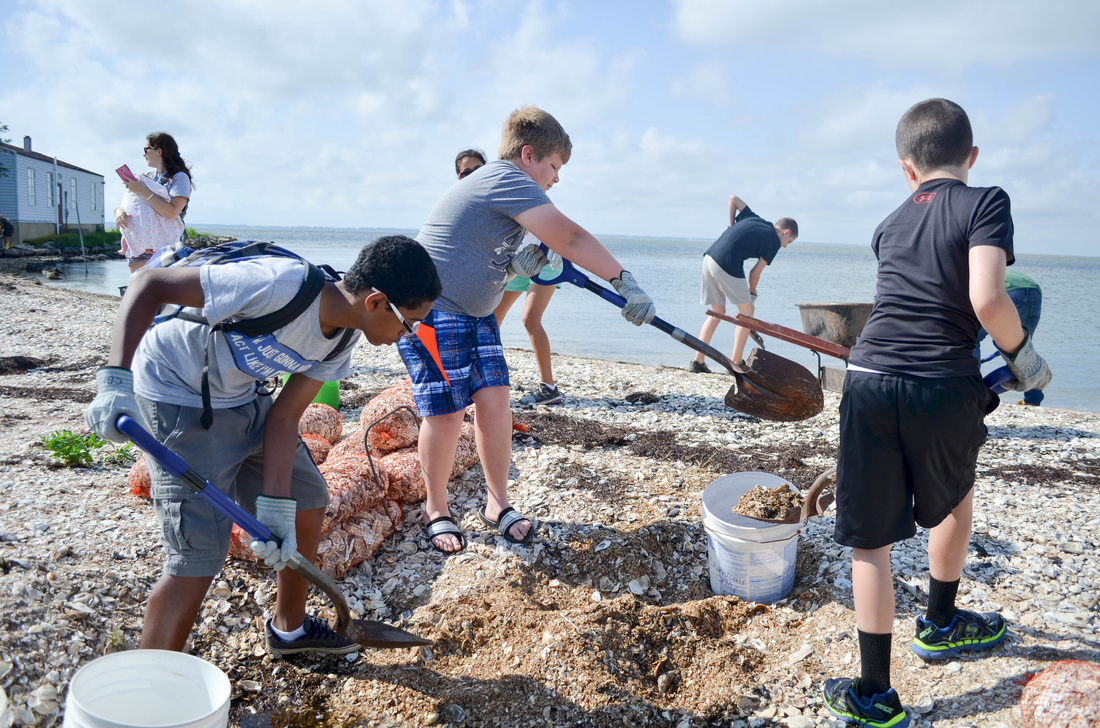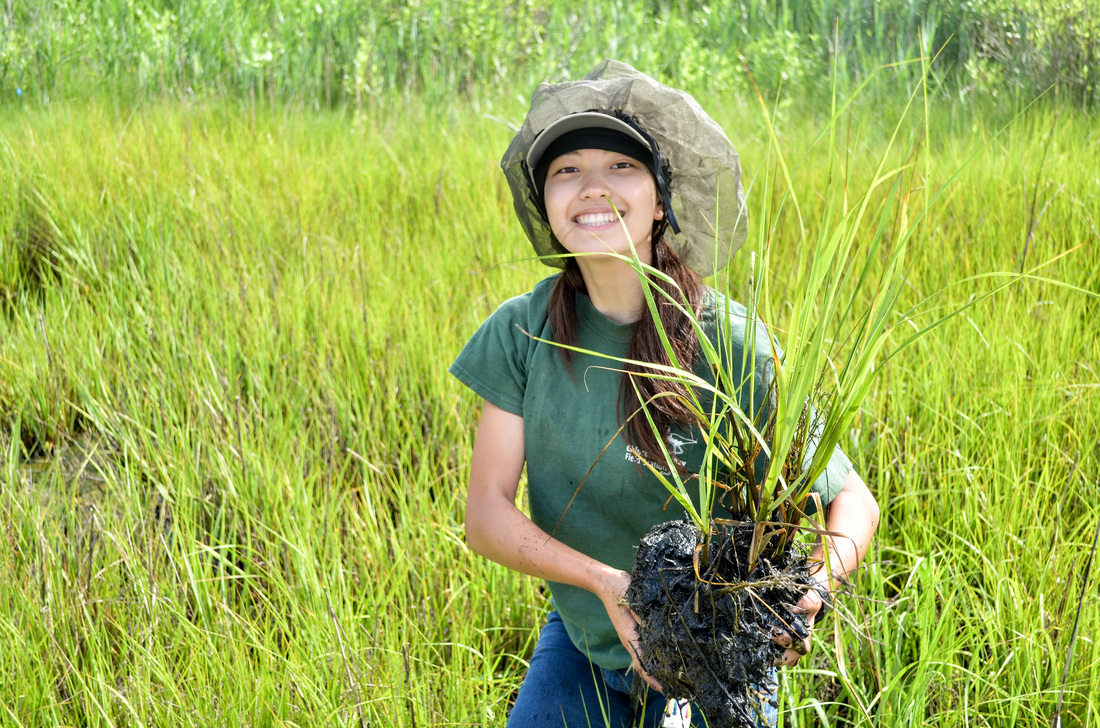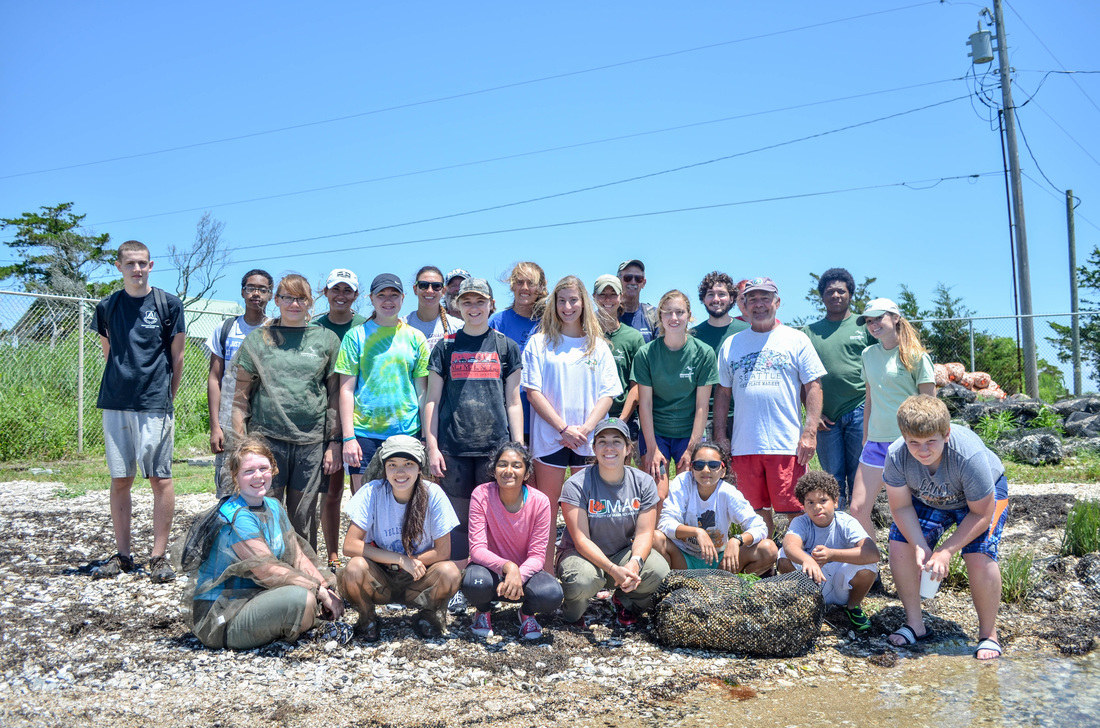|
What happens when you bring together middle and high school students, college students and researchers, local families, and community members together on a beautiful day along the Chincoteague Bay, in a town that lies just two feet above sea level? If you’re thinking a beach party, well, you’re not totally wrong. This past June Chincoteague Bay Field Station hosted its first of a series of Community Action Days, bringing these audiences together to learn about ways to adapt to environmental changes like sea level rise. The Action Days are student-run and learner-centered. During our most recent event, team members broke into groups to tackle three main projects: Oyster Castle Installation: With 211 Oyster Castle© blocks made of concrete, the team constructed eight castles and nine walls in the intertidal zone of the shoreline. The castles and walls serve two main purposes: to attenuate wave energy, reducing shoreline erosion, and to create a substrate for oyster recruitment and growth. Restoring Tidal Flow to the Marsh: Many hands and shovels were needed to carve out an old naturally occurring channel through the shell berm and beach area. CBFS’s Sea STAR high school interns and community members lead this “big dig” and reinforced the walls of the channel with bagged oyster shell. Planting Native Grasses: Another crew of volunteers including members of the Field Station’s SPARK Living Shoreline Team, planted small and large plugs of a native marsh grass species, called Spartina alterniflora, to help stabilize the shoreline. The native plants help to trap sediments and also provide natural habitat for a variety of coastal species. Through these contentious efforts, CBFS maintains Accomack County, VA's first-ever living shoreline. According to Maryland Department of Natural Resources, “Living shorelines are the result of applying erosion control measures that include a suite of techniques which can be used to minimize coastal erosion and maintain coastal processes.” Minimizing erosion in a community that sits just a few feet above sea level is pretty important. With extreme storm events like Hurricane Sandy and Super-Storm Irene, communities like Greenbackville, VA are most likely to catch the brunt of the damage. By using green techniques for mitigating coastal erosion, CBFS hopes to use their Living Shoreline as a buffer to the residential community and to model practices that can be replicated on other properties. But it's not just staff from the non-profit who are pushing this effort forward. Many activities at the site are youth-led. All of the project listed above that were completed during this past Community Action Day were researched and organized by a group of undergraduate students and recent graduates. With the help of a few dozen high school students, local families, and other community members, all of the improvements were implemented. A cadre of local families known as the SPARK Living Shoreline Team will monitor the effects of these actions over the course of the next year to determine the success of the actions. A participatory model is at the core of the Living Shoreline; students and families engage in all facets of the project, using scientific methods to produce knowledge about the local issue of sea level rise to bring about change. Over the course of the next year and a half, CBFS will host seven more Community Action Days and more than 800 students will visit the Living Shoreline to complete service learning projects and learn about building resilient communities in the face of environmental changes. This past spring, 82 students from Stephen Decatur Middle School took on a project to remove the invasive reed Phragmites australis from the marsh, hoping to open space for native marsh grasses to grow. These activities take students and families through the full continuum of environmental education – from critical thinking activities, team-based problem solving, and environmental stewardship. It's not every Community Action Day that we have a cloudless, eighty-degree, and virtually mosquito-less afternoon, but the commodore and enthusiasm make it feel as close to a beach party as Greenbackville may have ever seen! Projects at CBFS's Living Shoreline site are funded in part by EPA, NOAA, and Walmart.
1 Comment
7/22/2016 03:20:03 am
nice posts..
Reply
Leave a Reply. |
About
Everything you need to know about CBFS's educational programs, visiting Chincoteague Island, and more! Categories
All
Archives
January 2019
|
CHINCOTEAGUE BAY FIELD STATION | 34001 Mill Dam Road | Wallops Island, VA 23337 | (757) 824-5636 | [email protected]




 RSS Feed
RSS Feed

